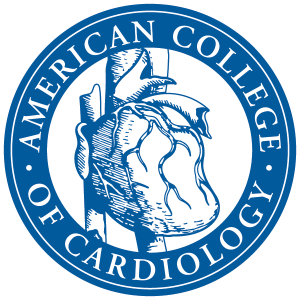 The most potent risk factor for heart disease is aging, according to the American College of Cardiology (ACC). Given how rapidly our population is aging, that’s sobering news indeed, especially when you consider that clinical practice guidelines rarely apply to older adults with multiple chronic conditions.
The most potent risk factor for heart disease is aging, according to the American College of Cardiology (ACC). Given how rapidly our population is aging, that’s sobering news indeed, especially when you consider that clinical practice guidelines rarely apply to older adults with multiple chronic conditions.
That means regardless of how experienced and skilled a cardiologist or other clinician may be in treating cardiovascular disease, they may not have received adequate training in how best to treat cardiovascular disease in older adults.
Fortunately, the American College of Cardiology has released the Essentials of Cardiovascular Care in Older Adults (ECCOA), a free, online self-assessment curriculum designed for cardiovascular specialists and other clinicians who care for older patients with cardiovascular disease. (Continuing education credits are available for physicians and nurses). The curriculum was developed with funding from a John A. Hartford Foundation grant.
I would like to especially thank members of the Geriatric Cardiology Member Section, many of whom contributed to the curriculum development. And by working with fellows in training to update the modules, they also helped develop our future leaders in geriatric cardiology.
The need for such a tool is clear. Older adults have the highest incidence and prevalence rates of heart disease. According to the ACC, they also incur the most complications from cardiac events and procedures, the largest number of adverse drug events, the highest resultant morbidity and mortality, the longest hospital stays, and the most readmissions.
So if you’re part of the burgeoning segment of the population age 65 or older and you have or develop heart disease, you certainly want to see a cardiologist or other clinician who understands the key features of aging that directly affect cardiovascular disease (CVD) to improve care and quality of life in older Americans.
According to the ACC, those completing the curriculum, which uses a case-based format, will be able to:
- Describe the physiologic changes that accompany aging and how they impact the presentation and management of cardiovascular disease (CVD) in older adults.
- Explain how age-associated changes in pharmacodynamics and pharmacokinetics often impact the dosing of cardiovascular drugs, and learn strategies to reduce adverse drug event and polypharmacy in seniors.
- Recognize important geriatric syndromes and challenges commonly seen in cardiovascular patients, including atrial fibrillation, heart failure with normal systolic function, isolated systolic hypertension, falls, incontinence, polypharmacy, multimorbidity, delirium and dementia, and learn multidisciplinary management strategies.
- Analyze evidence-based care specific for older patients with the following cardiovascular problems: acute coronary syndromes, chronic coronary disease, hypertension, peripheral vascular disease, heart failure, syncope and arrhythmias and valvular disease.
- Discuss the elements and appropriateness of patient-centered care, complicated decision making, palliative care and end-of-life care related to older patients.
- Examine appropriate prevention strategies and how the role of exercise, diet and cardiac rehabilitation differ in older patients compared to younger patients.
The program can be accessed on the ACC site at: cardiosource.org/ECCOA
This is the 10th in an occasional series. See other Health AGEnda posts on Tools You Can Use:
Tools You Can Use: Geriatric Transitions Objective Structured Video Examination
Tools You Can Use: A New APProach to Treating Older Patients
Tools You Can Use: Detecting Cognitive Impairment During the Medicare Annual Wellness Visit
Tools You Can Use: Preparing a Personal Advance Care Plan
Tools You Can Use: Guidelines for Assessing Patients Facing Surgery
Tools You Can Use: Principles for Treating Patients with Multiple Chronic Conditions
